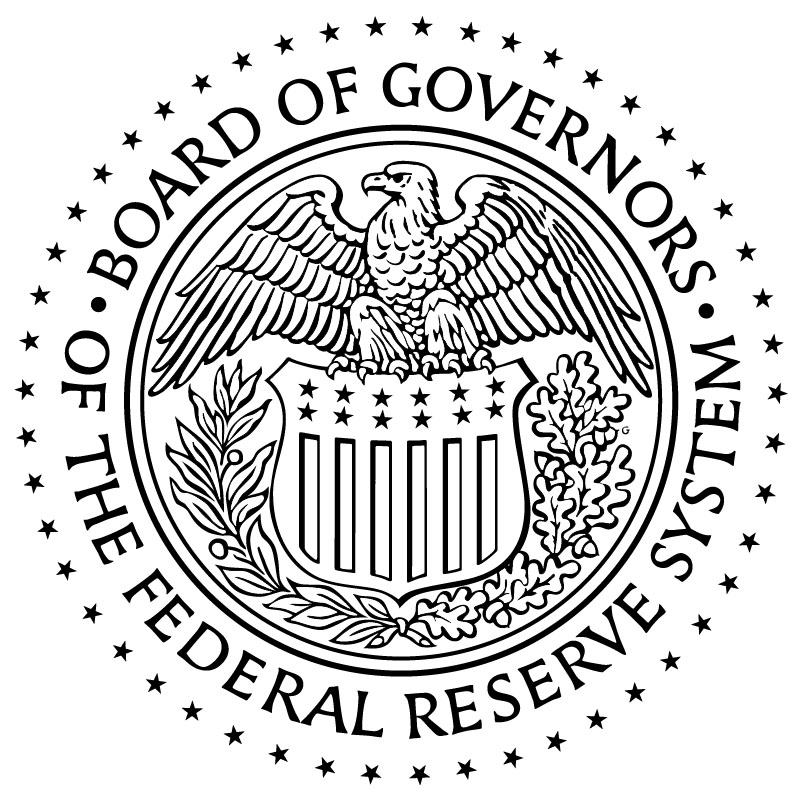Company Directory - United States Department of Commerce
Company Details - United States Department of Commerce

United States Department of Commerce
WebsiteWashington, United States
The United States Department of Commerce is a federal government agency responsible for promoting economic growth, job creation, and improved living standards through trade, technology, entrepreneurship, and improved economic conditions.
CCI Score
CCI Score: United States Department of Commerce
-5.38
0.01%
Latest Event
Proposal to Merge USPS into Commerce Department Raises Authoritarian Concerns
The proposal by President Trump to fold the USPS into the Commerce Department has raised alarms about potential complicity in authoritarian restructuring. The move implies that a key government agency could be used to consolidate political power, undermining democratic oversight and public accountability.
Take Action
So what can you do? It's time to make tough choices. Where will you cast your vote?
- Shop Alternatives
SEE ALL - Use Your Voice
OTHER TOOLS - Investigate
- Share the Score
SUPPORT CCI
COLLABORATOR
United States Department of Commerce is currently rated as a Collaborator.
Latest Events
 MAR252025
MAR252025The proposal by President Trump to fold the USPS into the Commerce Department has raised alarms about potential complicity in authoritarian restructuring. The move implies that a key government agency could be used to consolidate political power, undermining democratic oversight and public accountability.
 MAR032025
MAR032025The OpenSecrets profile of the United States Department of Commerce highlights extensive interactions with lobbyists and corporate interests. Under an anti-fascist lens, such robust lobbying activity raises concerns regarding potential regulatory capture and undue influence on policymaking, which can erode democratic accountability.
-35
Political Contributions and Lobbying Efforts
March 26
The documented lobbying interactions, as detailed by OpenSecrets, indicate that the Department of Commerce is subject to significant influence from corporate lobbyists. This exposure to intense lobbying efforts is problematic from an anti-fascist perspective because it suggests the possibility of regulatory capture and a shift away from prioritizing public interests, which in turn may support authoritarian or undemocratic policies.
 FEB182025
FEB182025The Senate confirmed Howard Lutnick, a staunch supporter of President Trump's hardline trade agenda, as Commerce Secretary. His appointment signals a politicized shift at the Commerce Department toward aggressive tariff policies and economic coercion, potentially undermining democratic norms.
-80
Executive Political Engagement
March 26
Howard Lutnick, confirmed as Commerce Secretary, is known for his background as a wealthy financier and his strong support for Trump's hardline trade policies. His appointment is likely to advance an authoritarian trade agenda through aggressive tariff measures that disrupt established democratic economic processes and favor executive overreach.
Senate confirms Howard Lutnick as commerce secretary, a key role for Trump’s trade agenda
 FEB042025
FEB042025The article reports on a broad coalition of business groups and trade associations backing Howard Lutnick’s nomination for U.S. Secretary of Commerce. This united front from industries including technology, energy, and communications indicates a potentially troubling convergence of corporate interests and governmental leadership. Critics argue that such endorsements may translate into policy choices that favor deregulation and corporate profitability over democratic accountability, signaling an entrenched executive political engagement that could undermine public welfare in favor of authoritarian-friendly economic policies.
-40
Executive Political Engagement
March 26
The coordinated support for Howard Lutnick from prominent industry groups underscores the strong influence of corporate interests in shaping political leadership in a key federal agency. This level of executive political engagement raises concerns from an anti-fascist perspective, as it suggests that economic power may be used to steer public policy toward deregulation and business-friendly norms, potentially eroding democratic oversight. The backing of influential sectors like technology, energy, and communications also indicates that these groups are positioning themselves to benefit from policies that could weaken labor rights and public accountability.
Business Community Unites Behind Lutnick for Commerce Department Leader
 JAN142025
JAN142025An analysis of the Department of Commerce highlights its vulnerability to corporate lobbying as documented in recent research. The agency, frequently targeted by companies seeking preferential regulatory treatment, exhibits signs of regulatory capture and revolving door dynamics that can undermine democratic accountability and foster authoritarian-friendly policies.
-70
Public and Political Behavior
March 26
The research shows that the Department of Commerce is one of the executive agencies most affected by corporate lobbying. This activity facilitates preferential treatment and a revolving door culture, eroding public trust and undermining democratic processes, which are hallmarks of authoritarian influence.
-60
Economic and Structural Influence
March 26
Corporate lobbying targeting executive agencies like the Department of Commerce has led to significant regulatory capture. The investigation details how companies secure benefits through influencing rulemaking and enforcement actions, contributing to structural economic imbalances and policies that favor corporate interests over public welfare.
 SEP102024
SEP102024The Department of Commerce announced new actions to enhance U.S. supply chain resilience through the SCALE analytical tool, tabletop exercises, and new strategic partnerships aimed at mitigating structural risks in key industries. These initiatives are designed to promote transparency, accountability, and proactive governance, thereby reinforcing democratic oversight and reducing vulnerabilities that could be exploited by authoritarian influences.
+75
Public and Political Behavior
March 26
Under the umbrella of Public and Political Behavior, the announcement demonstrates a commitment to transparent policymaking and proactive public engagement. By publicly detailing the SCALE tool and organizing industry tabletop exercises, the Department shows its dedication to safeguarding democratic processes against disruptions that might fuel authoritarian practices.
Fact Sheet: Department of Commerce Announces New Actions on Supply Chain Resilience
+70
Business Practices and Ethical Responsibility
March 26
Within Business Practices and Ethical Responsibility, the initiative signals positive ethical governance by enhancing supply chain oversight and promoting fair, data-driven business practices. Such proactive measures help ensure that private sector operations remain transparent and accountable, indirectly supporting labor rights and ethical sourcing practices.
Fact Sheet: Department of Commerce Announces New Actions on Supply Chain Resilience
+70
Technology and Services Impact
March 26
Under Technology and Services Impact, the deployment of the SCALE tool is an example of a forward-thinking technological initiative that leverages data analytics to assess and mitigate supply chain risks. This innovative approach promotes transparency and data-driven decision making, which are key to preventing misuse of technology for authoritarian control.
Fact Sheet: Department of Commerce Announces New Actions on Supply Chain Resilience
+80
Economic and Structural Influence
March 26
For Economic and Structural Influence, the initiative is a strong move to bolster national economic security by addressing systemic supply chain risks. The proactive measures, including industry summits and enhanced analytical capacity, contribute to a more resilient economic structure that supports democratic processes and reduces vulnerabilities exploitable by authoritarian regimes.
Fact Sheet: Department of Commerce Announces New Actions on Supply Chain Resilience
 APR012024
APR012024The US government, with involvement from multiple agencies including the Department of Commerce, has issued new guidance under its National Action Plan on Responsible Business Conduct. This guidance emphasizes the need for federal contractors to conduct robust human rights due diligence throughout their supply chains, aiming to combat human trafficking, forced labor, and other abuses. The initiative reflects a commitment to ethical governance and responsible market practices, countering authoritarian tendencies by holding businesses accountable for human rights standards.
+80
Public and Political Behavior
March 26
The issuance of guidance that promotes human rights and responsible business conduct represents a clear public stand against authoritarian practices. By mandating better due diligence and enforcement in federal procurement processes, the Department of Commerce demonstrates strong public and political leadership in upholding democratic values and ethical governance.
+70
Business Practices and Ethical Responsibility
March 26
The new guidance promotes improved business practices and ethical responsibility by requiring federal contractors to adhere to high standards of human rights due diligence. This move is aligned with efforts to prevent complicity in human rights abuses and reduce the risk of supporting regimes or practices that undermine democratic values.
 JUN092023
JUN092023The U.S. Department of Commerce, through its trade portal, has disseminated resources and guidelines aimed at helping U.S. businesses monitor and ensure their global supply chains are free from forced labor and human trafficking. This effort supports ethical supply chain practices and labor rights.
+80
Supply Chain Ethics
March 26
By providing comprehensive guidelines and resources to help U.S. businesses assess and mitigate risks related to forced labor and human trafficking in their supply chains, the Commerce Department is actively promoting ethical supply chain practices. This initiative supports improvements in labor rights and underscores a commitment to preventing complicity in human rights abuses. Such proactive measures are critical in countering authoritarian practices that exploit vulnerable groups.
Alternatives

Washington, D.C., United States
24.57

United States
7.97

Washington, United States
0.00

Silver Spring, United States
-6.10

Washington, D.C., United States
-3.56

Paris, France
58.70
Greece
-59.72

Corporation
13.11
Corporation
-50.07

Arlington, United States
56.95
Industries
- 923120
- Administration of Public Health Programs
- 926110
- Administration of General Economic Programs
- 926120
- Regulation and Administration of Transportation Programs
- 926130
- Regulation and Administration of Communications, Electric, Gas, and Other Utilities